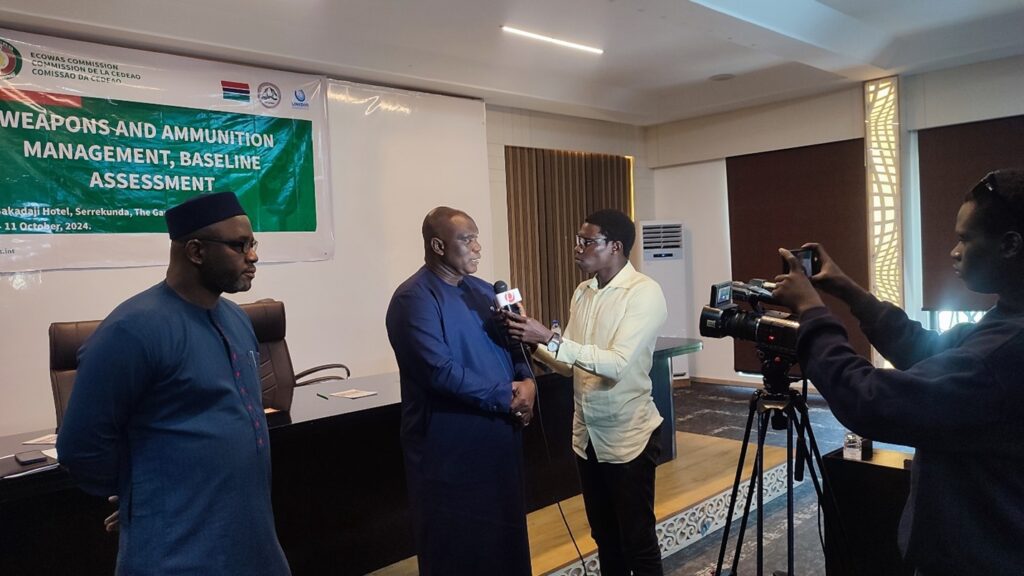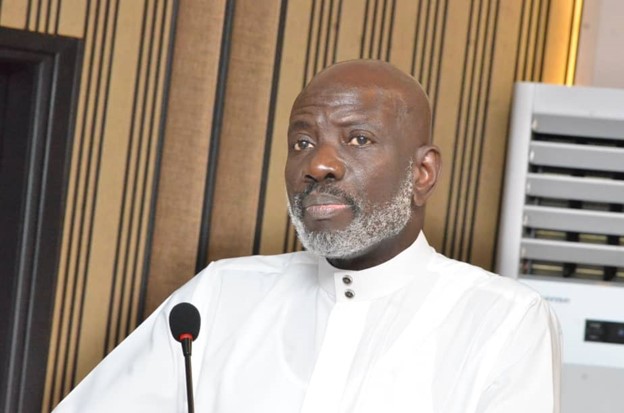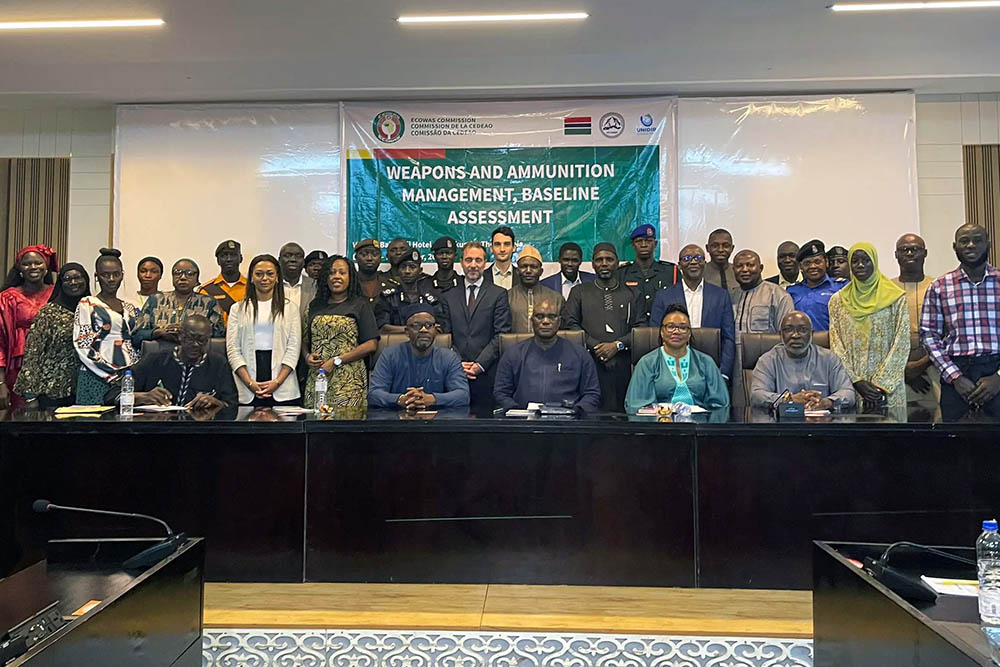From 7 to 11 October 2024, the Government of The Gambia, through its National Commission for Small Arms and Light Weapons Control (Natcom SALW), organized a consultative multistakeholder dialogue through a series of meetings in Banjul. These discussions were part of a national weapons and ammunition management (WAM) baseline assessment, conducted in cooperation with the Economic Community of West African States (ECOWAS) and UNIDIR’s Conventional Arms and Ammunition Programme. The research, dialogue and assessment aim to strengthen The Gambia’s framework for governing the lifecycle of weapons and ammunition management, as well as inform regional and international cooperation in this critical area.
A nationally led WAM baseline assessment
The proliferation and circulation of illicit arms in West Africa, including small arms and light weapons, ammunition and components as well as their acquisition and use by unauthorized actors poses a critical threat to State and human security, stability and development. Illicit arms flows hinder efforts of national authorities to provide security, protection, and development, with individuals and communities disproportionally affected by all forms of armed violence, including gender-based violence. Recognizing the urgency to address these issues, The Gambia, via its Natcom SALW led a national assessment of its frameworks for governing lifecycle management of weapons and ammunition, in cooperation with ECOWAS and UNIDIR.
Opening the dialogue in Banjul, Honorable Mr Serign Modou Nije, Minister of Defence, on behalf of the Honorable Minister of Interior and Security, overseeing Minister of the Natcom SALW (that day), emphasized that the government of The Gambia “attaches the highest priority to effectively manage weapons and ammunition” and pursues an “approach that integrates weapons and ammunition management into broader policy” domains. He expressed hope and the expectation that the assessment results will provide an evidence base as well as perspectives needed for continuous improvements in arms control.
Building foundations for the future
The assessment aims to assist governments, national authorities and key stakeholders to comprehensively and systematically assess WAM capabilities and decision-making processes, in line with international and regional obligations, commitments, and standards. This was achieved in The Gambia, where experts technically validated a strategic roadmap including a set of options and practical recommendations to strengthen the national WAM framework. The roadmap can now be used to strengthen the national WAM framework as well as, where needed, inform regional and international cooperation and assistance.

Driving a long-lasting integrated approach
Among some of the key issues discussed were the establishment or the identification of a national coordination mechanism that is overseen by a national lead entity and brings together all parts of the government to work towards a strategic approach to life-cycle management of arms and ammunition in The Gambia. Leveraging it within the institutional architecture as well as effectively operationalizing it remains key. Expert participants also discussed controls over international arms transfers by The Gambia and the importance of implementing the provisions and measures contained in the ECOWAS Convention, in addition to the domestication and effective implementation of the Arms Trade Treaty. Finally, the dialogue recognized effective practices and key areas where progress has been achieved, most notably in marking State-held weapons and disposing of material, emphasizing the need to build on these gains for continued progress.

Boosting security, safety and stability
In his closing remarks, National Security Advisor and Head of the Office of National Security, Mr Abubakarr Suleiman Jeng, noted The Gambia’s commitment to follow through on priorities identified during the baseline assessment. He called for continued cooperation and collaboration in implementing, monitoring and refining the national WAM framework, reiterating the country’s “strong determination to implement the recommendations that have emerged.” He also emphasized the framework’s role in ultimately boosting security, safety and stability, along with sustainable development, in The Gambia and the wider West African region.
The path forward
UNIDIR, in cooperation with ECOWAS and the Natcom SALW, is preparing a summary of key findings for consideration by high-level government officials in The Gambia. A comprehensive report will subsequently be transmitted via the Natcom SALW to the government of The Gambia. A public release of The Gambia’s WAM Country Insight is expected in the coming months, as part of UNIDIR’s WAM Insight Series. Together with its partners, UNIDIR remains committed to raising awareness and monitoring progress made by The Gambia, other States, national authorities, and other stakeholders in the region to strengthen frameworks for governing the lifecycle management of WAM in West Africa.
